
To facilitate that industry, a dam was built at the harbor entrance. Since then, tidal water has been greatly reduced and as a result, much sludge began to form. Seaweed and seashells were the first casualties.
The situation is such that the swans are now fed tons of bird feed every year, instead of foraging for themselves. Experts say the worst scenario is that the lagoons will dry up and the swans will disappear.
In its tough battle against ecological degradation, the local government launched a remedial project worth more than 60 million yuan ($9.65 million) in 2011. One of the first projects was to demolish the harbor front dam and to dredge off the sludge that had accumulated.
The project will clear sludge in a 400,000-square-meter area that will make room for the eel grass to grow again.
Supported by the Ocean University of China's artificial planting technologies, the Rongcheng government has sown about 50 kilograms of eel grass seeds and put in another 1,000 kg of baby clams to kick start the ecological transformation.
Once the habitats of the eel grass and clams are established, conservationists can reduce the amount of bird feed by at least 10 tons, starting from this year.
Fish-farming, the main source of income for residents of the area, will also be severely restricted in certain stretches.
But the residents seem confident that their sacrifices will pay off.
In 2002, an award-winning photo of a mother swan spreading its wings to protect its baby sparked an online sensation. Since then hundreds of photographers, from as far as South Korea and Japan, have congregated at Rongcheng each year hoping to take an even better picture.
Qu Xuerong, 61, started his hostel around the time the first group of photographers arrived. He partitioned his bungalow into about a dozen cozy cubicles for rent, and immediately reaped an income of 4,000 yuan the first year.
In the past decade, Qu has seen the number of tourists increase in tandem with his business. By 2010, after adding another two-story building to expand the family hostel so it can receive more than 400 visitors a year, Qu now has an annual income of 30,000 yuan.
In Qu's village alone, at least 30 households offer family hostels, a profitable business that frees them from the fetters of hard labor in the fields.
As a major tourist attraction, official statistics state that the Rongcheng swan lakes bring in about 200,000 visitors a year to the county-level city, with about 280 million yuan in revenue that accounts for 60 percent of total tourism takings in an otherwise slack winter season.
"People say swans are auspicious birds. They bring fortune and fame. Otherwise nobody would ever get to know such a remote village as ours," Qu says.
The new prosperity and an even newer respect for nature and its creatures reflect the villagers' changing attitudes.
They were shooting the swans in the 1970s and '80s, says Yu Zhuangzhi, a conservation officer with the swan lakes, designated a national nature reserve in 2007.
When people came across an injured swan, Yu remembers, they would take it home and eat it. But now, they call the conservation center or try to take care of the bird themselves.
Sun Maozhen, 65, is one of those who choose to work at the swan protection stations after his retirement. In his daily patrols, he records the number of swans, their time of arrival and departure, and the amount of bird feed given.
When a swan is injured after hitting a wire or being tangled in fishing nets, Sun would sterilize, dress the wounds and splint its broken wings or legs.
Being able to save a swan is a surprising source of glory for the villagers, and tales of "warmhearted villagers and injured swans" abound, although it may not be immediately apparent to visitors.
The one thing they get to see is how the villagers volunteer to feed the swans when the lakes freeze over.
As time goes by, Qu notes, the swans are no longer as afraid of people as they used to be. After living so many years right beside these little creatures, Qu says that they have become a part of his life. "It used to bother me a lot when they whooped at night. But gradually I got used to it, just like I got used to my wife's snores. The funniest thing is, every time they fly back home, I actually miss their whoops and find it hard to fall asleep," he laughs.

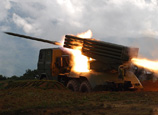
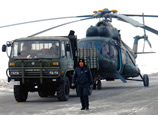

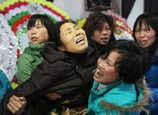
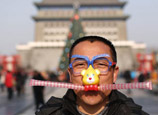



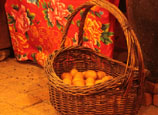







 Railway staff members express Spring Festival greetings
Railway staff members express Spring Festival greetings


![]()
